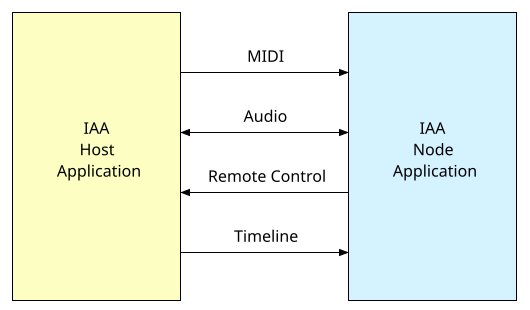Inter-App Audio (IAA) is a deprecated [1] technology developed by Apple Inc. which routes audio and MIDI signals between applications on the iOS mobile operating system. The technology was first introduced in 2013 in iOS 7 and deprecated in 2019 with the release of iOS 13.
Contents
